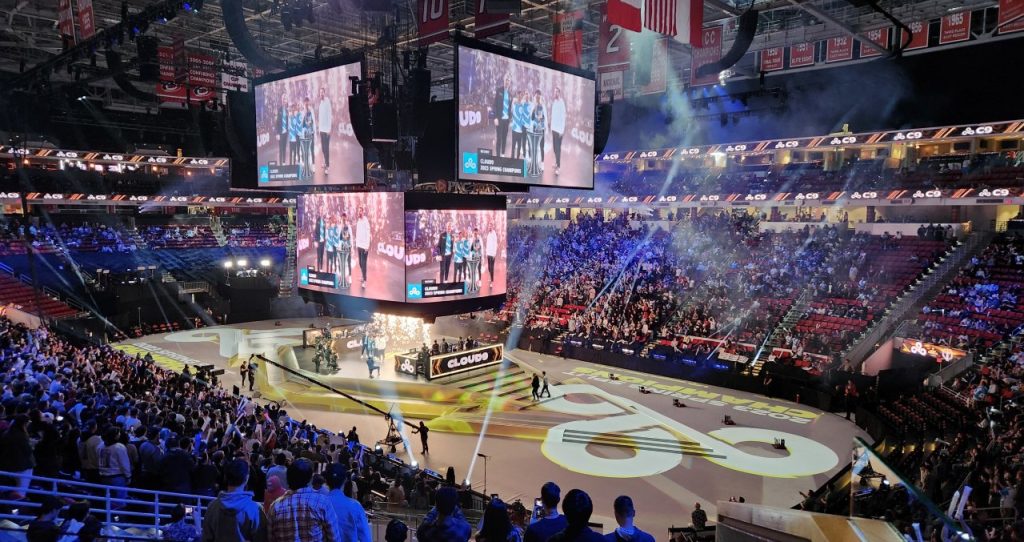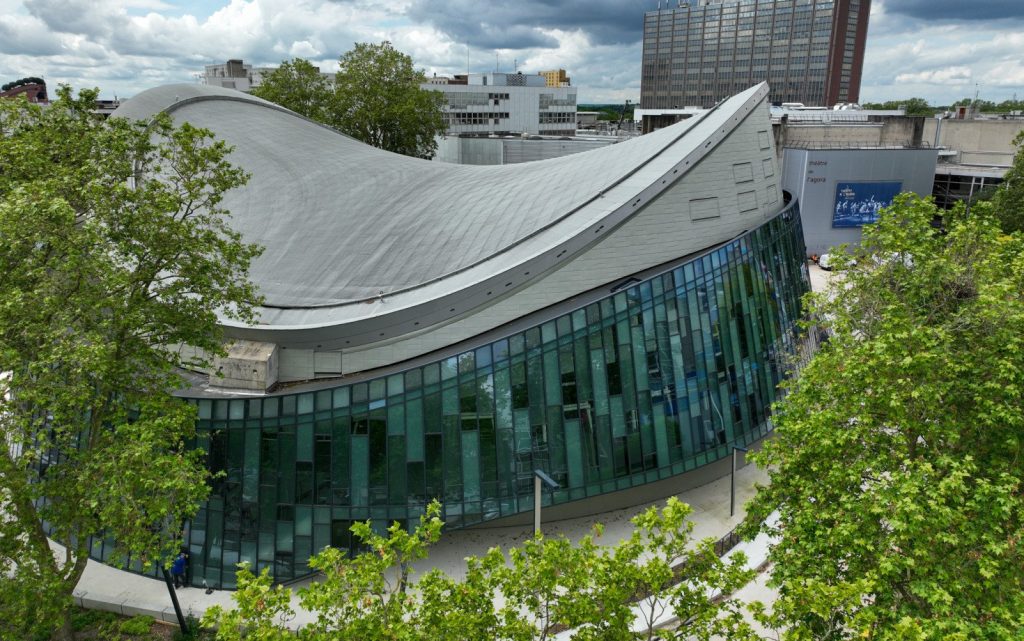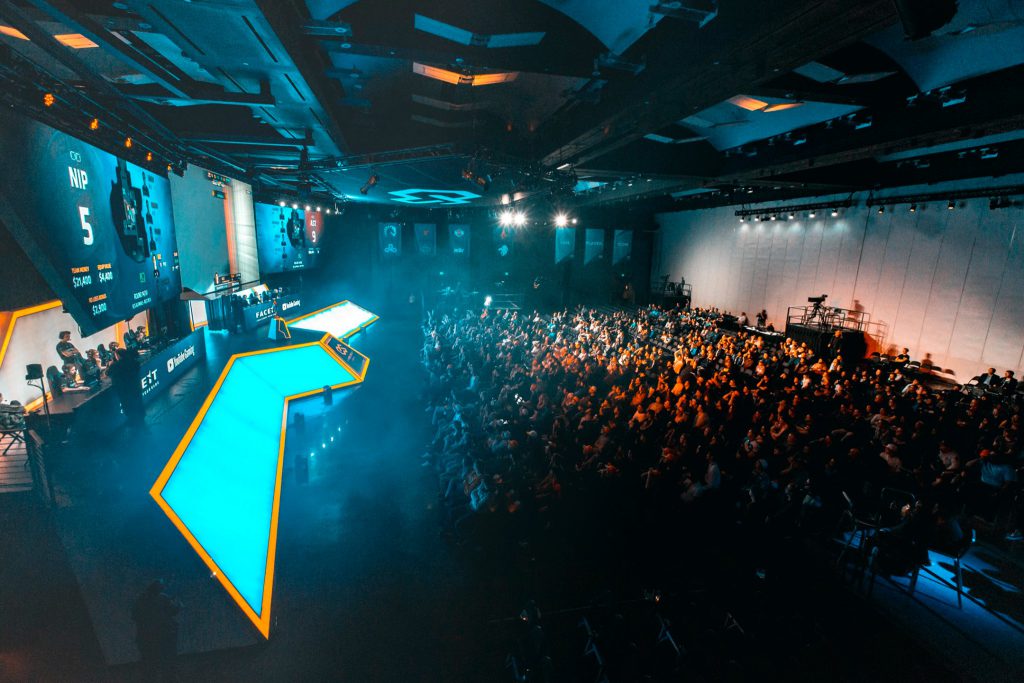Ahead of ESI Events’ flagship conference ESI Lisbon (September 23rd-25th), ‘Looking at Lisbon’ takes a look at the topics behind our mainstage panels. This article dives into the discussion around venues — and whether they’re ready for esports.

The meteoric rise of esports has fundamentally transformed the landscape of competitive gaming and the ecosystem around it. In just a few short years, esports tournaments have exploded from humble beginnings in auditoriums to massive stadium showdowns, fueled by the desire for esport communities to come together. This rapid evolution begs a crucial question: are multi-purpose, esports-ready venues the next step in the industry’s growth? And what does being esports-ready actually entail?
Over the years the esports industry has witnessed a dramatic shift in the way tournaments are staged. Today’s esports competitions demand a level of production and infrastructure that traditional sports venues often struggle to deliver, as tournament organisers look to surpass bars that they previously set. While many esports events have successfully utilised sports stadiums and arenas, these spaces often require significant adaptation to meet the needs of esports tournaments — from their grandiose opening ceremonies and complex set-ups.
Bespoke esports-ready venues offer a potential solution to this challenge.
Designed specifically for the unique requirements of esports competitions, these facilities promise an ideal environment for players and spectators alike. This new kind of event venue can also incorporate features that streamline the production process for broadcasters and co-streamers, ensuring the highest quality viewing experience for fans at home.
Some esports organisations are already one step ahead, having built their own home grounds to cater to their local community. One of the most recent additions to this trend, which is less unusual in Eastern countries like China and Korea, is Karmine Corp’s home base in Paris, France. This three-thousand-seat multi-purpose venue will not only host esports tournaments but also serve as a hub for the organisation’s content creation, merchandise sales, and community events.
Similar to football clubs’ stadiums, an esports venue can become a public place where fans from all over the world can converge to cheer for their favourite team, buy merchandise, or just take a picture in front of the building. However, providing the fanbase with its own physical hub to meet and manifest their passion can be both challenging and expensive.

Rather than pursuing large, standalone arenas for individual esports teams — which could quickly become major financial liabilities — organisations may choose to opt for smaller, team-specific home bases or shared, multi-purpose venues. Whatever the approach, sustainability will likely (and hopefully) be front of mind for those thinking of launching their own custom esports venue.
For those looking to accommodate esports in their venues, there’s lots to consider. Besides the aforementioned broadcast space, player lounges, media room, interview booths, and enough backstage space for crews of hundreds of people, esports venues need to be well connected – in more than one way. An uninterrupted, pristine internet connection is an absolute must for the event and its broadcast, as it is the link that keeps the action going and lets the masses at home watch along.
The venue must also ideally be well connected to transportation enabling fans to smoothly, and affordably, reach the event. It’s particularly easy to give up on going to an esports event in person — which can be comfortably watched from home for free in almost all cases — when the journey is more challenging than the competition itself.
To be truly esports-ready and positioned for success, this also requires the venues’ catering, professional services, ticketing, parking, contracts and staff to know it and understand it.

This is often best begun by, or at least it should go hand-in-hand with, an understanding and strategy from the destination. A look at Visit Raleigh’s approach in North America is testament to what can be achieved when a destination takes the sector seriously and invests in a dedicated strategy and team, similarly London & Partners in Europe.
“Purpose-built, esports only venues, stadiums have been a topic for a long time — and have already been addressed,” said Ed Tomasi, Co-Chair – Greater Raleigh Esports Committee. “They currently do not work because they are not sustainable for various reasons. At least here in North America, cities and private investors are no longer interested in building an esports-only venue/facility — and any recent attempt has never made it past the due diligence phase.
“Multi-purpose venues that can accommodate for sports, esports, entertainment, conferences, etc., these ARE being considered, planned and built”, Tomasi explained.
Join Visit Raleigh, Karmine Corp and other key stakeholders at ESI Lisbon on September 24th for the panel ‘Purpose Built: Are destinations and venues esports ready?’, to discuss the viability of esports venues and provide insights into future projections for this growing landscape.



